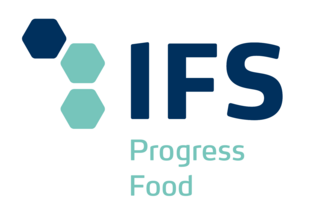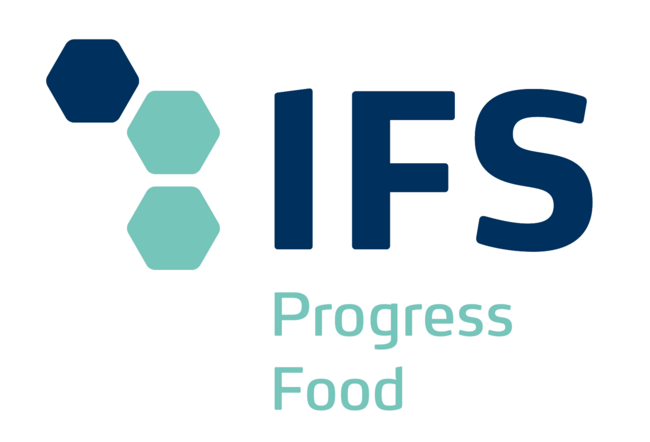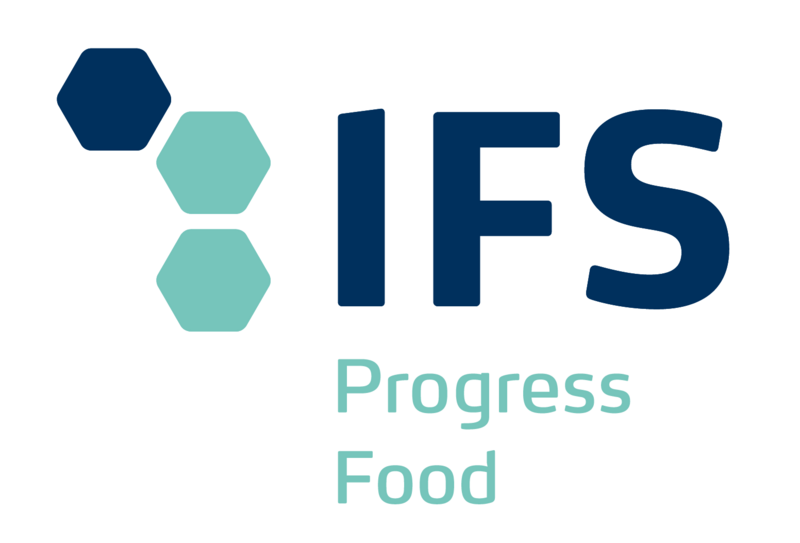International Featured Standard Progress Food (formerly IFS Global Markets): Your food safety for beginners
Even as a small company, you can implement your food safety system according to the IFS Food Standard and benefit from attractive market opportunities. The IFS Progress Programme (formerly know as Global Markets Programme) is a standardised assessment programme and the first part of your IFS Food certification.
The procedure builds on various checklists as well as the assessment protocol. The standard is not accredited.




Would you like to contact us?
Would you like an offer?
Information: Renaming of the IFS Global Markets Food standard to IFS Progress Food
that the IFS Global Markets Food standard will be renamed IFS Progress Food. The new logo and the new name IFS Progress Food must be used from 15 May 2024. The renaming was initiated by IFS and does not entail any changes to the content. The requirements and content of IFS Global Markets Food Version 3 will continue to apply, and existing reports and confirmation letters will not be changed.
To make this transition as seamless as possible, we recommend that you take the following steps:
- inform your customers and relevant business partners about the renaming.
- check whether contracts or contract supplements with your business partners need to be updated or supplemented.
- update supplier contracts, forms, information materials, your website, communication materials and other relevant materials by 15 May 2024
- download the relevant IFS Progress logos from the IFS database
- download the supplementary IFS Progress protocols from the IFS website for your documentation.
Frequently asked questions about the IFS Progress Food Programm:
The standard is aimed at artisanal food producers or producers of regional specialities, for example, who have no previous experience with industrial food production practices. You can also be certified as a producer in a non-European country with a planned market entry into the European food trade. Local trading partners prefer to accept products from manufacturers who can show IFS Global Markets certification.
The aim of IFS Progress Food is to help small businesses access regional trade and international markets. The standard creates mutual acceptance in the supply chain and companies are supported in their further development, particularly through mentoring, development and assessment.
The IFS Progress Food Standard essentially deals with three areas:
- Food Safety System
- Good manufacturing practice
- Control of food hazards
The requirements are broken down in detail as follows:
1. food safety management system
- Specifications
- Handling of food safety incidents
- Control of non-conforming products and corrective actions
- Traceability
2. good manufacturing practice
- Personal hygiene
- Operational environment
- Water quality
- Cleaning and disinfection
- Product contamination control
- Pest control
- Maintenance of plant and equipment
- Waste
- Storage/transport
- Social rooms
3. control of food hazards or HACCP and additional requirements
- Topic complexes Control of food hazards in general and specifically
- HACCP
- Control of allergens
Training at the IFS on the Progress Food Programme is recommended. Information on the IFS Academy's offer as well as guidelines and the standard for download are available on the IFS website.
TÜV NORD CERT offers to carry out a pre-audit. The results of the pre-audit are not yet included in the assessment according to the IFS Progress Food Standard and serve to take stock of the food safety and quality requirements in your company.
IFS Progress Food Certification: your advantages
- Proof of food safety and quality system with manageable expenditure
- Development of new customer groups through inclusion in the IFS database
- Continuous optimisation of own processes
- Increased acceptance and improved relations with trading partners
- Receive a detailed assessment report and action plan
- Cost reduction and time saving
- Systematic approach to IFS Food certification
Your route to IFS Progress Food Certification




What is realized in IFS Progress Food Version 3?
The following changes have been implemented in the IFS Progress Food Standard in version 3:
Structural changes:
- Voluntary unannounced assessments are now possible at the Intermediate level
- The structure of the standard is aligned with the IFS Food Standard and thus facilitates preparation for IFS Food certification.
- The guideline for the implementation of the standard requirements has been integrated into the checklist, so that a uniform document can be used in version 3.
- The requirements regarding the HACCP concept were adapted to the new Codex Alimentarius 2020.
- The risk-based approach was introduced and requires various risk analyses on the part of the company for the implementation of the requirements.
- Half instead of one third of the total assessment time is now spent on the on-site evaluation.
- Many formulations and regulations have been made clearer. For example, the options for supplementary assessments and extension assessments are now clearly defined. Non-conformity management, especially in the case of failed assessments, is clearly defined. Outsourced processes, exclusions and decentralised structures have been considered in the standard.
- The definition of corrections and corrective actions in the action plan and their processing by the company is more clearly regulated.
- Supporting documents, such as the decision tree for product exclusions, were added.
- The assessment report contains 13 mandatory fields that must be filled in.
Changes in the catalogue of requirements:
- Number of requirements has been increased, so that the basic level now contains127 requirements and the intermediate level 74 requirements.
- The requirements themselves were often supplemented and formulated more precisely in line with IFS Food.
- The risk-based approach and its detailed documentation have been included in the requirements of the intermediate level. This now also includes the requirement for hygiene inspections.
- Some requirements from the intermediate level have been transferred to the basic level.
- In total, there are 15 new requirements, 10 of which are at the basic level and 5 at the intermediate level, on the following topics:
- New requirements on the topic of food safety culture,
- Food fraud,
- Product development,
- Product labelling,
- Pest control,
- Cleaning
- The responsibility of the management on the topic of food safety culture, responsibility and resources for the implementation of the food safety system and customer requirements is emphasised more strongly.
- The requirements in chapter 4 on operational processes as well as the requirements for the infrastructure and the production building were formulated more concretely and in more detail.
Your certification with TÜV NORD CERT
As a renowned and experienced certifier, TÜV NORD CERT works with auditors with multiple qualifications. Effective and cost-effective combination audits are possible. TÜV NORD CERT is approved for IFS certification by IFS Management GmbH and accredited by DAkkS (Deutsche Akkreditierungsstelle GmbH).
Your international sales contact in Germany
TÜV NORD CERT GmbH
Food & Agriculture
Tel.: +49 (0)160 888 3919
Food-Certification@tuv-nord.com
International Sales Contact by Country
CCPB Italy
Mrs. Elisabetty Szulin
eszulin@tuv-nord.com
Tel: +39 (0)3701300804